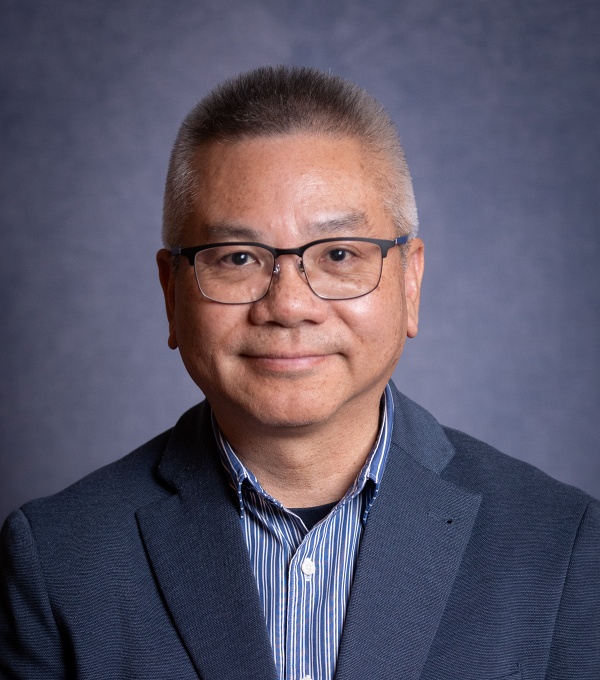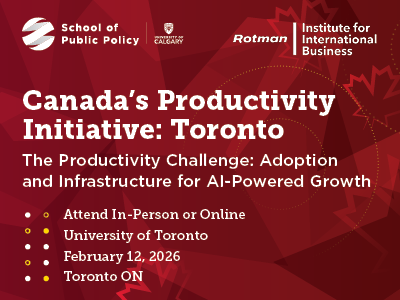NEWS: Celebrating Dr. Siu Ming Kwok’s legacy in social work regulation

Dr. Siu Ming Kwok, Professor and Associate Director, the School of Public Policy, University of Calgary and outgoing ACSW Council President
This story was written and published by The Registrar. You can view the original story here.
In licensing and professional regulation, policy and practice may appear to be at odds, with one rooted in institutional frameworks and the other in personal realities.
But for Siu Ming Kwok, outgoing president of the Alberta College of Social Workers (ACSW), bridging the two begins with a simple premise: “Before you serve people, you must first understand them.” As a registered social worker, academic, researcher, and regulator, Kwok’s career spans four decades and two continents. Drawing from Eastern and Western philosophies, his perspectives shaped social work regulation in Alberta and beyond. For him, the profession must be human-centred, ethical practice grounded in respect and collective responsibility.
“The whole concept of social work, over my 40 years in the profession, comes down to three simple words: to understand, to work together, and to serve the public,” he affirms. “It’s how I live this work, not just a slogan I abide by.”
Cultural influences on social work practice
Originally from Hong Kong, Kwok entered social work with little formal understanding of the profession. “I had no idea what social work was when I first chose it,” he admits. “All I knew was from television dramas, which, of course, were for entertainment.” He recalls that his initial interest in the profession lied in the human angle to it, shaped by his cultural background and the Eastern value of collective well-being.
Upon arriving in Canada, he earned his master’s in public administration and social work at Western University and the University of British Columbia, respectively, before obtaining his PhD in social work at the University of Calgary. The opportunity to blend two worldviews of the profession shaped Kwok’s foundational approach to his work, centred on ethics, humility and understanding – a perspective that grew into a lifelong commitment to supporting the profession through regulatory leadership.
“In Eastern traditions, we think in terms of family, community, and lineage.” he says. “Even our surnames are tied to ancestry. In Western contexts, it’s more individualistic, focused on self-actualization and personal growth. I try to bring those perspectives together in how I teach and lead.”
“There’s a saying I live by: I don’t mind if people don’t understand me, but I do mind if I don’t understand people,” he stresses. “That’s the essence of social work. Your job is to understand others, not to be understood yourself.”
He continues, “when someone comes into your office, it’s not your turn to share. It’s their turn to speak. You are there to listen deeply. That’s your role.”
Three roles, one profession
Kwok sees the ideal regulated social worker as someone who wears three hats. “The first hat is the practitioner, because this is a practice degree,” he explains. “You cannot just talk, you have to have the practice and then translate your knowledge into day-to-day life.”
He says the second and third roles social workers wear centres on research and education, respectively. “You have to conceptualize your experience and elevate it into a principle that you can test and apply to other cases,” he says. “The last one is educator. If you’ve practiced, and if your practice is informed by research, then you have a responsibility to mentor the next generation of social workers.”
Reiterating his lessons from teaching social research and public administration has informed his philosophy of mentorship, Kwok says “If you’ve benefited from the profession, you have an obligation to support others entering it.” He therefore urges social workers to share their learning beyond one-on-one relationships.
Overseeing transformative regulatory processes
Kwok credits both his tenure as president for the Canadian Council of Social Work Regulators (CCSWR) from 2022 to 2024, along with his studies in municipal policy at Western University, as critical to understanding how regulation and community service intersect. “I was learning alongside local mayors. That was an incredible experience. It showed me how policies are shaped in real time and why social workers need to be at those tables, not just responding to policy, but influencing it.”
A call from a former student first prompted Kwok’s involvement with the ACSW council, an opportunity he admits he hadn’t previously considered. Though initially reluctant, he agreed, motivated by a sense of responsibility and the hope that others would follow. “If I put my name forward, maybe my students would too,” he reflects. “We all need to take part in building the systems we’re part of.”
After assuming the role of in 2021, he brought with him a governance mindset that was shaped by multi-jurisdictional experiences and an extensive theoretic understanding of the profession. through which the fundamentals of regulation have guided his leadership. “A profession exists through a contract with society,” he says. “We must earn and maintain the public’s trust through professional standards, not just good intentions.”
Kwok’s term as council president coincided with a significant transition for ACSW, moving from a dual to a single mandate focused solely on public protection. Alberta’s Bill 46, the Health Statutes Amendment Act (2020) (No.2), required all dual mandate organizations that regulated and represented the voice of their professions to divest themselves of their advocacy roles. ACSW completed this in 2022, and Kwok reflects on how the organizational transformation was considerable.
“It was a big change,” he recalls. “It doesn’t mean we don’t care about social workers, but our loyalty must be to the public interest first.”
He also presided over the development of a new code of ethics, a foundational document he sees as more than procedural. “A code of ethics can’t just say, ‘be a good person,’” Kwok says. “That’s not enough. We need language that translates to real behaviours, things we can evaluate, teach, and enforce. Otherwise, we’re not truly protecting the public.”
“This is your book,” he would tell registrants. “It’s your professional compass for the next 15 years. Read it. Understand it. Own it.”
Building an inclusive and accountable profession
Equity, diversity, inclusion (EDI) and Indigenous engagement were central to Kwok’s tenure at ACSW, commitments that will likely define his legacy and commitment to the profession. He sees them not as buzzwords but as essential tools for improving both practice and policy. In his view, a diverse council – one that reflects the community it serves – makes better decisions. “You can’t serve people effectively if you don’t understand their cultural context,” he affirms.
“Our clients come from all walks of life,” he says. “We must reflect that diversity, not only in who we serve, but in who is making the decisions. That includes council tables, leadership positions, and educational settings.”
He highlights how the profession today looks very different than it did just 20 years ago. “When I look at my council, it includes people from racialized backgrounds, Indigenous communities, immigrants, and that makes a difference,” he proudly says. “They bring perspectives others can’t, and that helps us make better decisions.”
Kwok warns that EDI initiatives must be genuine, not transactional or performative. “It’s not about optics. It’s about creating space for lived experiences to shape policies and standards. That’s how you build trust with communities, and how you create meaningful, informed regulation.”
Due to the profession’s fractious history with Indigenous communities, and the ongoing need to rebuild trust, he says that many vulnerable clients are not always willing participants. “We can’t forget the past,” he says. “Social work played a role in harmful policies like the residential school system and child removals. There’s mistrust. We must acknowledge that, and we must work together with Indigenous communities in a respectful and equitable way.
ACSW is currently implementing an action plan to weave the fundamental principles of reconciliation, equity, diversity, and inclusion (REDI) into its core functions, policies, and culture to ensure all aspects of its work embraces equitable, respectful, and collaborative relationships with Indigenous and other equity deserving peoples.
An impactful legacy
As Kwok steps away from his role, his vision for social work continues to resonate with the College and beyond: building a profession rooted in ethical practice, shaped by lived experiences, and commit-
ted to understanding those it serves. Reflecting on what kind of legacy he hopes to leave behind, he shares, “If I’ve contributed to clearer standards, better education, and more inclusive regulation, I’m proud of that. But more than anything, I hope I’ve helped people reflect on why they chose this profession.”
When asked what advice he would offer future council members and regulatory leaders, Kwok emphasizes the importance of connection between action and accountability. “Link your standards to your strategic goals. Tie your goals to your reporting. Show the public not just what you’re doing, but why it matters. And always remember, you’re not protecting a profession. You’re upholding the public trust.”
For Kwok, understanding has always been the foundation of service. “Understanding is the first step to service. It’s not enough to want to help. You must learn why people think and feel the way they do. Only then can we work together toward real solutions.”
Perspectives from ACSW’S Council and Leadership
During a time of significant transformation at the Alberta College of Social Workers, Dr. Siu Ming Kwok’s principled and compassionate leadership left a lasting mark on his colleagues. Executive director and registrar and incoming Council president, Jody-Lee Farah and Samuel Mammen respectively, offer candid reflections on their time working with Dr. Kwok, and emphasize his collaborative and values-driven approach that shaped a regulatory culture of thoughtful governance through respectful, practical dialogue.
Incoming Council president, Samuel Mammen
“I had the privilege of being on the Alberta College of Social Workers (ACSW) Council under the leadership of President Siu Ming Kwok. Siu Ming carried a welcoming warmth in his smile as he started every meeting. Siu Ming’s leadership reminds me of the finesse of a captain who effectively steers his ship. In the divestment journey of ACSW, Siu Ming exemplified unwavering commitment to the direction and held a holding environment for the council, comprising social workers and public members, to explore, understand, and align with the mandate and vision of the next phase of the Alberta College of Social Workers history. He demonstrated a rare ability to balance clarity of purpose with empathy for the process. His capacity to facilitate respectful dialogues and his commitment to change stand out to me. His leadership left a lasting impact on my understanding of what thoughtful, inclusive governance can look like.”
Jody-Lee Farah, executive director and registrar
“Siu Ming Kwok is a humble, kind and principled social worker and leader. During his tenure as Council Chair, his steady leadership guided our organization through substantial, large-scale change resulting from legislative amendments. His engagement with Council members aimed to establish a work together from common ground mind-set, fostering safe and respectful dialogue leading to sound decision-making in governance of the profession. Siu Ming’s leadership through change opened doors to new possibilities in professional regulation that hadn’t been realized in the past, creating space for growth and innovative ideas. Siu Ming Kwok has left a lasting legacy at the Council that set the path forward for years to come.”

